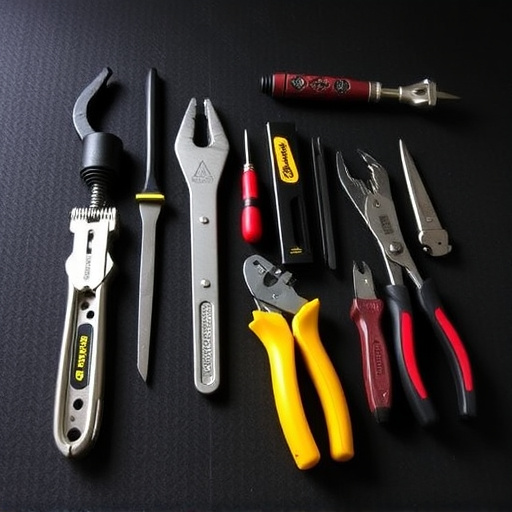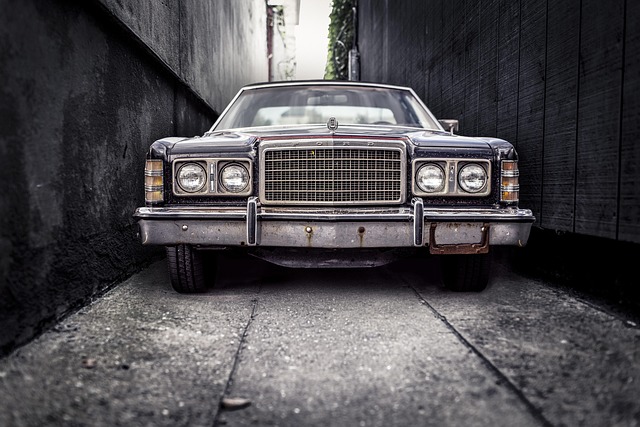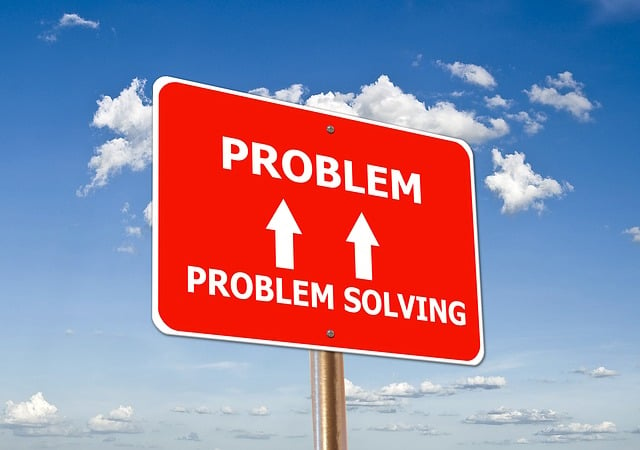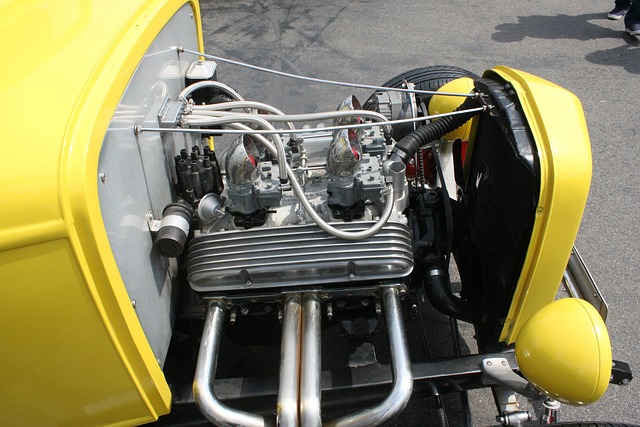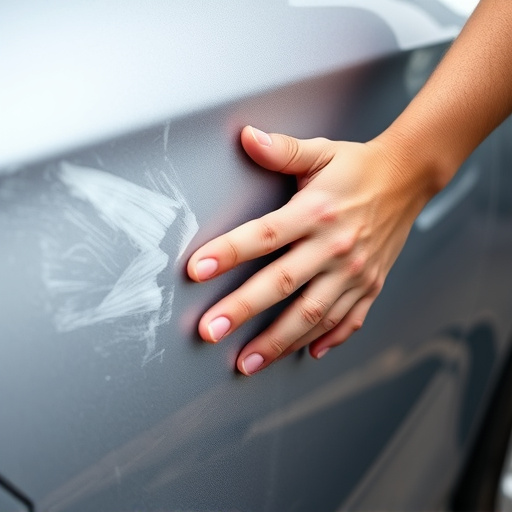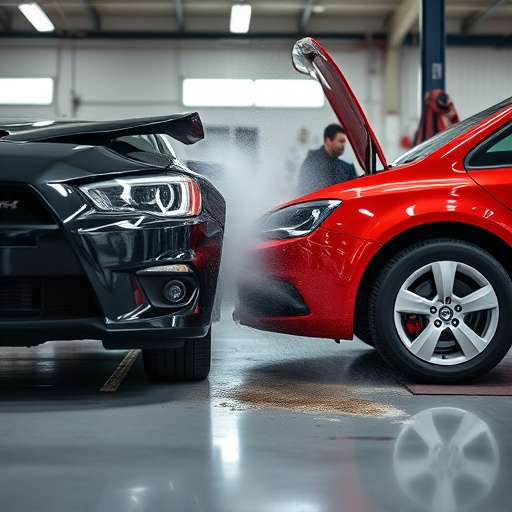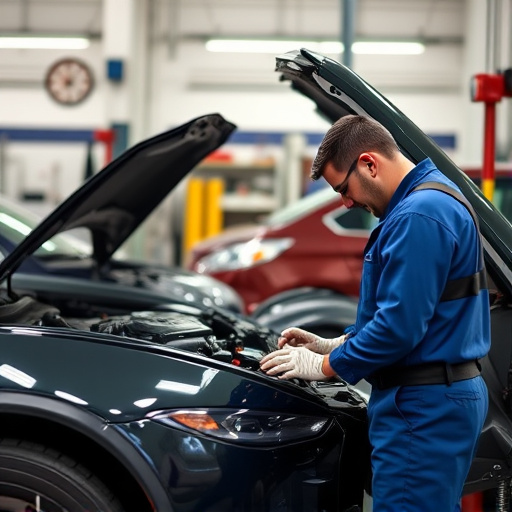The automotive sector benefits from partnerships between leasing companies and auto body repair shops, ensuring vehicle quality and operational efficiency. When leased cars are damaged, these firms collaborate for restoration, involving assessments, specialized services like frame repair and painting, and adherence to safety standards. This partnership provides repair shops with steady work and fosters professionalism while ensuring leasing companies maintain fleet value. By streamlining processes and focusing on quality, this collaboration enhances customer satisfaction and drives industry success.
Auto body repair shops play a crucial role in maintaining vehicles, especially those leased through various companies. This article delves into the unique collaboration between these businesses, exploring how they work together seamlessly. We’ll break down the process, from initial damage assessment to final restoration, highlighting the benefits and challenges of this partnership. Understanding this dynamic is essential for both auto repair experts and leasing companies looking to optimize vehicle condition and customer satisfaction.
- Understanding the Collaboration: Auto Body Repair Shops and Leasing Companies
- The Process: How They Work Together
- Benefits and Challenges: A Look at the Partnership
Understanding the Collaboration: Auto Body Repair Shops and Leasing Companies
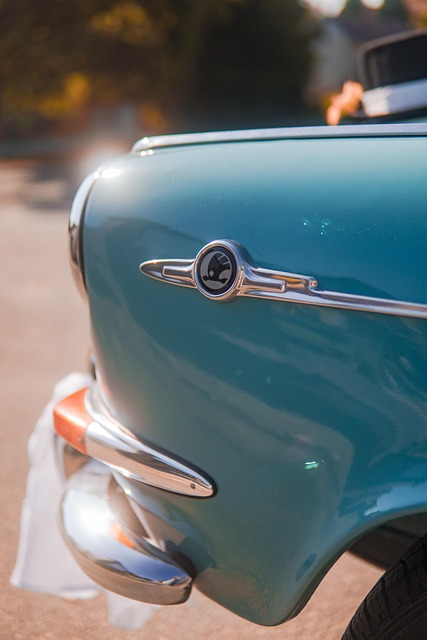
In the automotive industry, a strong collaboration between auto body repair shops and leasing companies is essential for maintaining vehicle quality and ensuring efficient operations. When a leased vehicle incurs damage, whether through an accident or regular wear and tear, the leasing company relies on trusted auto body repair shops to restore it to its original condition. This partnership involves several key aspects: from assessing and estimating repairs, to performing specialized services like auto frame repair and auto painting, to ensuring compliance with strict safety and environmental standards.
Leasing companies benefit from working with auto body repair shops by accessing their expertise in auto body restoration, which is crucial for maintaining the value of their fleet. Auto body repair shops, in turn, gain consistent work and a steady stream of business through these partnerships. This collaboration fosters a culture of professionalism, reliability, and customer satisfaction, ultimately contributing to the success of both industries.
The Process: How They Work Together
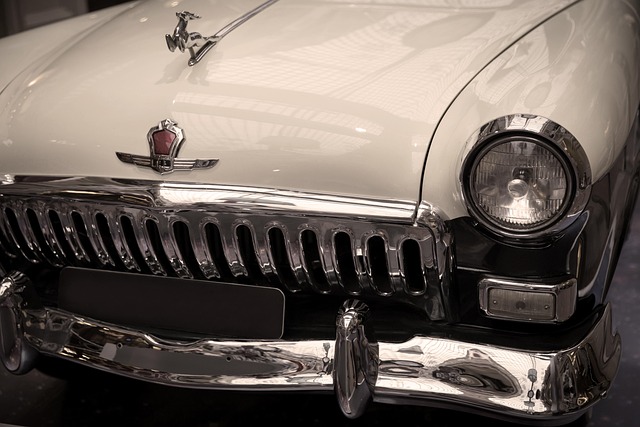
When an auto body repair shop works with leasing companies, it involves a collaborative process designed to ensure swift and effective vehicle restoration after accidents or damage. Typically, the partnership begins when a leasing company notifies the repair shop about a damaged vehicle within their fleet. The auto body repair shop then assesses the extent of the damage, which may include everything from minor bumper repairs to extensive car paint repairs.
This collaboration goes beyond simple transaction. Reputable auto repair shops often work closely with leasing companies to understand their specific needs and preferences for vehicle maintenance and restoration. This ensures that processes are streamlined, allowing for faster turnaround times without compromising on quality. Whether it’s a fender bender or more severe collision damage, the auto body repair shop leverages its expertise in bumper repair, car paint repair, and other services to restore the vehicles to like-new condition, ultimately contributing to the leasing company’s satisfaction and operational efficiency.
Benefits and Challenges: A Look at the Partnership

The partnership between auto body repair shops and leasing companies offers several advantages for both parties. For auto body repair shops, working with leasing firms provides a steady stream of business, ensuring a consistent flow of work. Leasing companies benefit from having access to specialized services, enabling them to maintain their fleets efficiently. This collaboration fosters a culture of timely repairs and restoration, which is crucial for fleet managers aiming to keep vehicles on the road. It also facilitates cost-effective solutions for car restoration, as repair shops can offer competitive pricing for lease returns or damaged vehicles.
However, challenges exist in this partnership dynamic. Auto body repair shops must adapt to the strict schedules and demands of leasing companies, potentially impacting their operational flexibility. Additionally, keeping up with various vehicle makes and models from different manufacturers requires specialized knowledge, especially for niche brands like Mercedes Benz repair. The constant need for precision and quality control during fender repair or any other restoration process can be demanding for repair shop staff. Despite these challenges, a strong working relationship between auto body repair shops and leasing companies can lead to a robust network, ultimately enhancing the overall automotive service industry.
Auto body repair shops and leasing companies form a powerful partnership, streamlining vehicle restoration processes. By collaborating, they offer efficient repairs, ensuring leased vehicles return to their prime condition. This synergy benefits both parties, with repair shops gaining consistent work and leasing companies securing high-quality vehicle maintenance. However, challenges exist, such as coordinating schedules and managing costs, requiring open communication and flexible strategies to overcome. This partnership is a testament to the evolving automotive industry, where specialized services converge for optimal results.


